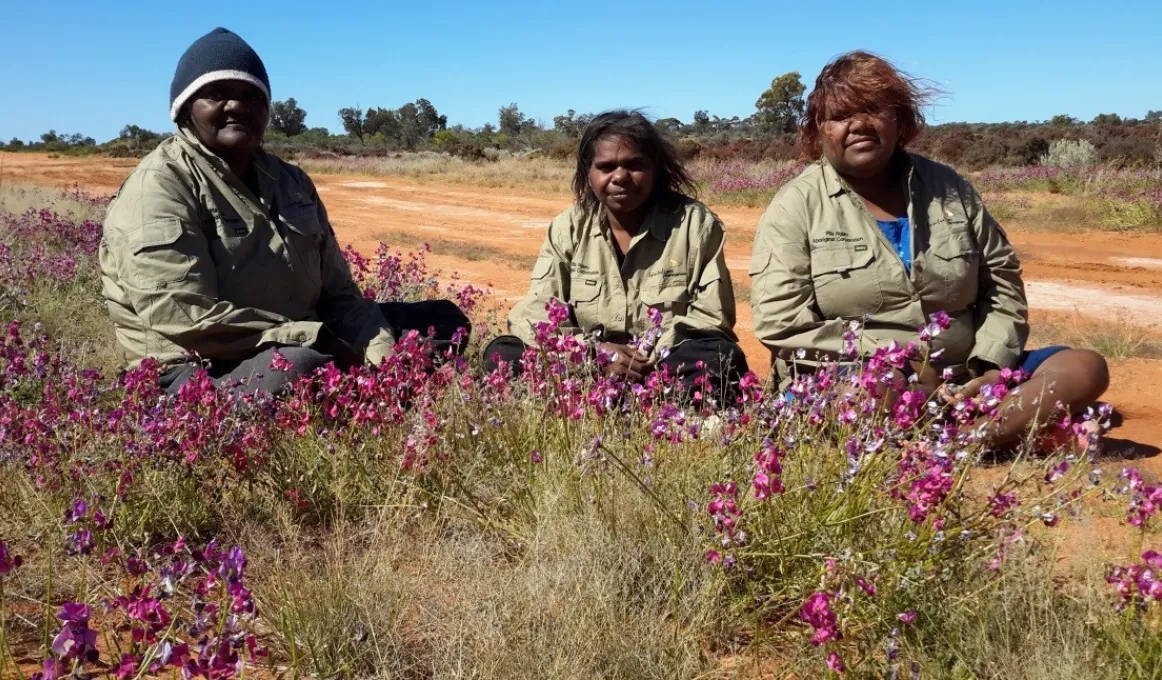Prestigious land care award recognises the work of the Spinifex people

The Spinifex Rangers are based in one of Australia’s most remote communities and recently won the Western Australian Indigenous Landcare Award for following both traditional land care practices and fresh responses to new environmental threats.
An Indigenous rangers group based in one of our most remote communities has won a prestigious land care award, as they follow on the traditional land care work of their ancestors.
The Spinifex Land Management (SLM) Rangers, based in Tjuntjuntjara, 650 kilometres north east of Kalgoorlie in Western Australia, recently won the Western Australian Indigenous Landcare Award for following both traditional Pila Nguru Anangu (Spinifex people) land care practices and fresh responses to new environmental threats.
Ian Baird, General Manager of Pila Nguru Aboriginal Corporation (PNAC), which runs the SLM Rangers, says that for the Anangu, the continuation of strong culture is closely linked to appropriate land care.
“In the Great Victoria Desert Anangu have been caring for the land for 15,000 years or so,” Ian said.
“The SLM team are continuing the ancient land care practices of fire, water and cultural site management, while also working on new threats like buffel grass, camels and introduced predators.”
One reason for SLMs Landcare Awards success was the development of the Spinifex Healthy Country Plan, a comprehensive document setting out the issues facing Spinifex country and the steps needed to repair the country. Part of the Plan was contributing knowledge and experience to the wider area to ensure traditional knowledge was not lost, so in June they organised and hosted the inaugural Southern Deserts Rangers Forum. Over seventy rangers from eight other Indigenous land management groups from the southern deserts attended and learnt from each other.
The team has also embraced the wider Spinifex community in events like the Return to Country trip at the small Spinifex waystation community of Ilkurlka in May. Using a helicopter Elders took the rangers to 44 remote and inaccessible locations in six days to pass on traditional knowledge like fire management, which was incorporated into the Healthy Country Plan. While this was happening, female rangers taught students how to make kiti (glue) from the Minyura tree and how to find and look after nganamara (malleefowl), thereby helping to build the next generation of Spinifex land managers.
While the Spinifex Rangers have achieved great success, Ian says that they still face many issues that impact on their work.
“One of our greatest challenges is our remoteness and how it is a barrier to effectively participating in training opportunities and partnerships. However, we now have access to NBN and the rangers are actively embracing technology. An essential part of the rangers bush kit are iPads containing the Fulcrum app. The rangers record the details of their field trips and the information is downloaded on to the SLM data base for record and reporting purposes. Skype and similar programs are used to participate in the broader desert land care community.”
Due to its remoteness the outside world may never see the results of the hard work of the Spinifex Rangers but we can be confident that Spinifex country will continue to be looked after for generations to come.
Find out more
Indigenous Rangers are an important part of the Australian Government’s commitment to provide more jobs for Aboriginal and Torres Strait Islander people, while also managing and preserving important environmental assets.
The Indigenous Rangers Program has created around 2,500 jobs in 114 groups across Australia. The Indigenous Rangers program is funded through the Australian Government’s Indigenous Advancement Strategy.